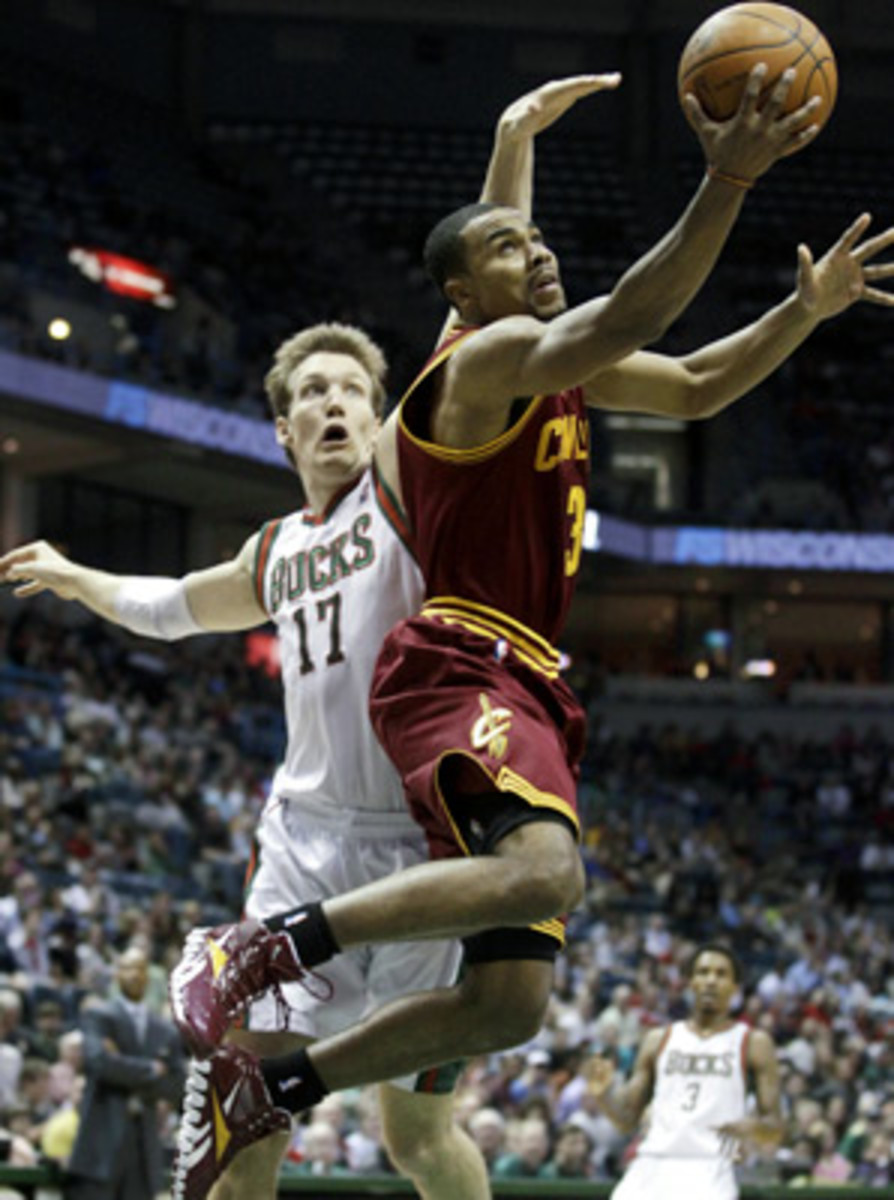Despite flurry of trades, deadline defined by who didn't make deals
The biggest news of the delayed 2012 trade deadline came from teams that made no trades at all. The Magic held onto Dwight Howard, the Celtics maintained their Big Four for a final run, and the top three championship contenders -- the Bulls, Thunder and Heat -- all stayed quiet. They understood that a major trade six weeks before the playoffs, with little practice time in between, could do more harm than good.
The most aggressive contender was the Lakers, who tried and failed to pull off their long-speculated pursuit of Michael Beasley, but shook up their roster nonetheless. They sent a first-rounder along with the expiring contract of Luke Walton to Cleveland for Ramon Sessions, who figures to be the new starting point guard in Los Angeles.
Sessions gives the Lakers help on the perimeter as a shooter and penetrator, though he is known as a guard who needs the ball -- and he isn't likely to have it on a team that relies as much as the Lakers do on Kobe Bryant. The Lakers tried and failed to enhance their wing play when the deal for Beasley fell through, though in the process they were able to hold onto Steve Blake as a true point guard.
The consequences of the new Sessions-Blake tandem were shocking, as the Lakers sent Derek Fisher and a pick to the Rockets for little-used big man Jordan Hill, which will be a painful move for Kobe Bryant and Lakers fans who were grateful of Fisher's contributions to five championships. At age 36, Fisher had been criticized this year as too old and slow, but at his $3.4 million salary, he was hardly the reason for the Lakers' perimeter troubles. Had he been surrounded by more athletic players on the wing, then surely there would have been a role for Fisher on this team.
Instead the Lakers move on without a leader who since the 1996 draft (when he and Bryant were first-round picks) has defined their teamwork and enabled them to bond around their stars. In the playoffs the Lakers may yet miss Fisher for the big shots he routinely knocked down in crunch time. They will, however, head into May with their impressive front line of Andrew Bynum and Pau Gasol, neither of whom was moved in spite of the abundant speculation surrounding them.
The Celtics had opportunities to make similar moves with their three aging stars. The top 10 contenders reached out with a variety of proposals for Ray Allen, who received the brunt of the interest, and Paul Pierce. But the Celtics needed to receive a combination of young talent and draft picks if they were going to essentially give up on the rest of this season. As a result, they'll go into the draft with two first-round picks and a large amount of cap space to fill around Rajon Rondo and Pierce.
The biggest deadline mover was the Trail Blazers, who essentially sold off Gerald Wallace to the Nets and Marcus Camby to the Rockets while firing coach Nate McMillan, who was put out of his misery. McMillan had been unable to motivate his players as the franchise crumbled around them, which now leaves Portland without a fulltime GM or head coach. The Blazers were unable to move Jamal Crawford or Raymond Felton, among others, amid news that they intended to waive former No. 1 pick Greg Oden, whose injuries were part of the larger story of a franchise that failed to take advantage of an opportunity to build a contender.
The Nets' acquisition of Wallace was the first step in their mission to hold onto point guard Deron Williams, whose dream of playing with Howard came to an end when the Magic center opted to stay with Orlando for next season. In the meantime, the Mavericks refused to make a move Thursday in order to maintain cap space for a summer run at Williams and other free agents.
The biggest trade Thursday was the three-team deal that sent Nene to the Wizards, which gives them an early start in rebuilding around John Wall this summer; Javale McGee to the young Nuggets as an athletic big man; and Nick Young to the Clippers, providing them with the perimeter scorer they've lacked since Chauncey Billups suffered a season-ending Achilles injury. The trade enabled the Wizards to unload two players who had been defined by their immaturity. They go to teams that can absorb them: George Karl should be able to deal with McGee, and Chris Paul has exhibited strong leadership with the Clippers.
The Pacers augmented their deep rotation by adding Leandro Barbosa from Toronto as another scorer off the bench. The deal cost Indiana only a second-round pick, as Barbosa was dealt into the Pacers' cap space.
The same dynamic works to the benefit of the Spurs, who are one of the few teams that can bring out the best in the mercurial Stephen Jackson. He helped the Spurs win one of their championships, and on Thursday the Spurs packaged Richard Jefferson to Golden State in hopes that Jackson can help them win another.
All in all, this was an odd trading day in what has been a strange, lockout-influenced year. In the end, this deadline will be defined by two teams: The Magic, who remained in contention by keeping Howard; and the Lakers, who hoped they improved themselves on the perimeter just enough to overcome the Thunder in the West.






